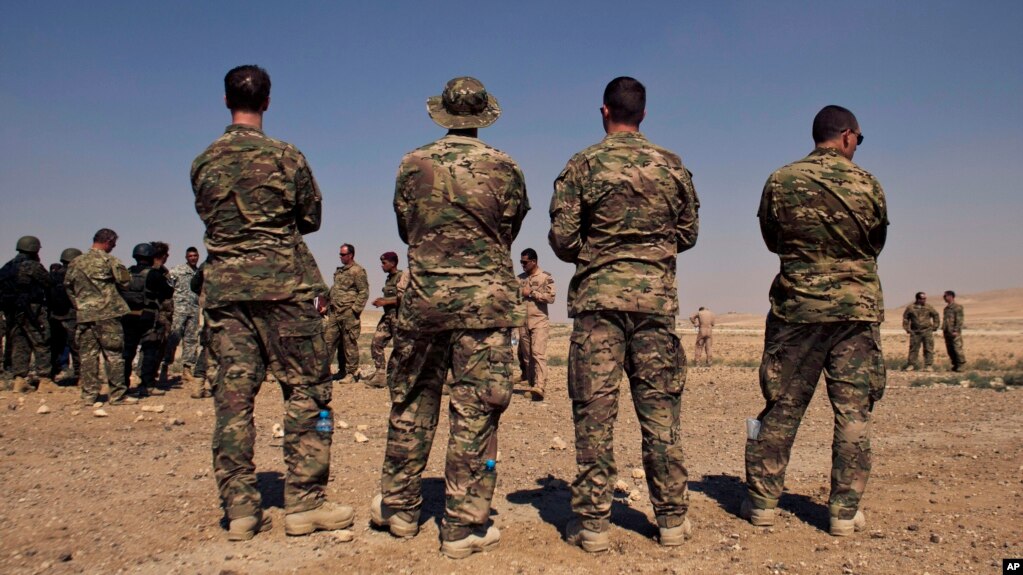China’s rapid rise in manufacturing, investment and technological innovation represents some of the most significant challenges to the U.S. primacy. The internal and external challenges that America faces has weakened its global position.
Priyanka Garodia
The end of the Cold War consolidated the global hegemony of the United States. The collapse of the Soviet Union allowed the U.S. to emerge as the world’s uncontested leader and principal architect of its security landscape. However, things have changed remarkably in recent times. The present world order is characterised by multipolarity, increasing global competition and a shift in the universal acceptance of democracy, resulting in a diminished global presence for the U.S. While the U.S. remains one of the most important countries in the world, it has experienced considerable decline in the domain of security, soft power, and economy.
Security Landscape
The interaction of the United States of America with the world can be seen as periods of intervention and strategic retrenchment to suit its foreign policy needs. During the Cold War, the U.S. had a proactive role in the construction of the world order. It was fighting a longue duree war with the Soviet Union, not simply in conventional terms but also ideologically to establish the best form of organisational politics and economics. It won the war and established the liberal democratic world order. The role it adopted was active and interventionist.
Post-Cold War, the U.S. emerged as a security guarantor on which it based its supremacy. However, the nature of engagement that it chose was not active intervention but rather selective participation. Marked changes were noticed under the Clinton administration where intervention in conflicts like those in Haiti, Kosovo and Somalia did take place, but a strategic reluctance could be felt when dealing with affairs of the world. America’s focus was domestic politics and limited military campaigns.
The 9/11 terrorist attacks changed this position, with the Bush administration adopting a more-hardline approach and reverting to full-scale military intervention with the invasion of Iraq. The invasion of Iraq was the commencement of the “Good-vs-Evil” war that used most of American resources and attention. It was a war that was positioned to root out terrorism from the Middle East with a heavy emphasis on democracy, freedom of speech and less as retribution. The consequent intervention in Afghanistan, where America masked the invasion of the country largely as social protection against the Taliban and their archaic ways, cemented its interruptions in the region and its fight against terror. These invasions were sold to the world and the American people as quests to establish democracy and liberalism while masking its true nature of political engineering that resulted in large-scale destabilisation in the region. Suffering from war-fatigue, Barack Obama’s election as the 44th president of the United States was contingent on a campaign run on returning America’s focus on domestic politics and the pulling out of troops from Afghanistan. The architect of the ‘Asian Pivot’, he sought to shift focus from the Middle East to Asia and the Indo-Pacific as security concerns. This was also seen as contingency measures for China’s unprecedented economic rise and tendency of non-conformity to the democratic world order. The Biden administration’s pullout from Afghanistan cemented this shift in focus.
What one can observe from this consistent pattern of intervention and withdrawal is the undeniable cyclical nature of American involvement and retreat in global matters. Frequently, these interventions have led to large-scale destabilisation, as U.S. leaders misjudged the complexities of local political and social landscapes, leading to failed regime-change efforts in places like Iraq, Libya, and Yemen. This cyclical nature of intervention and withdrawal not only reveals strategic miscalculations but also contributes to the erosion of U.S. authority in global governance.
The reduced agency that the U.S. has in the global order should not be confused as a sign of weakness but rather a shift in emphasis. It remains a formidable power, bolstered by numerous security alliances, defence pacts, and military bases; however, its emphasis has transitioned towards regional power-sharing rather than global policing. This evolution is a result of a more astute assessment of its security challenges, including an aggressive China and Russia. Its focus on containing China’s growing influence in the Indo-Pacific, the Middle-East, Africa and South America, is its highest priority internationally.
Limits of Democratic Appeal
The global consensus on democracy that reigned supreme after the Cold War began to unravel post 9/11 and the global economic crisis of 2008. The rise of populist regimes and authoritarian tendencies in most countries worldwide indicate a growing disenchantment with democracy. The appeal of democracy is limited both domestically in countries and internationally as well. This has had significant repercussions for America’s image worldwide as it had worked tirelessly to create an immediate association of the country with democracy. Despite these challenges, the U.S. remains highly regarded in certain sectors. According to Pew and Gallup, 61% of global respondents still view the U.S. favourably, though this is a far cry from its earlier dominance as a universal beacon of democratic governance.
Externally, the global appeal of democracy—once the ideological cornerstone of the U.S. soft power—has begun to erode. The rise of populism and authoritarian tendencies globally has exposed the limits of U.S. influence. Internally, political polarisation and social unrest have undermined the credibility of the democratic model the U.S. has long championed. Hollywood, tech companies, and higher education are where America scores highest. However, competing narratives from China and the Russian state media have complicated matters. Tiktok’s undeniable power over Facebook cannot be overlooked. America has reduced its public diplomacy programmes including the Peace Corps and Fulbright Scholarships which were important tools in establishing American soft power post-cold war.
The U.S. has a history of trying to export its values of democracy and the free market through interventions. However, these actions particularly America’s initiation of regime changes and destabilisation has led to a diminishing soft power. Movements in Iraq, Venezuela and other countries largely in opposition to the U.S. have emboldened autocracies to position themselves as a more stabilising force. Seeing this power vacuum, the Chinese have proven exceptionally adept in making their way through. However, they do not replicate U.S. action and have been careful to not let their political motivations be seen as overtly as America has.
Declining Economic Influence
The Global economic landscape has seen a dramatic shift with U.S. economic primacy being challenged. The rise of China has redefined the balance of power globally and the U.S. can be seen as struggling to maintain its global position. The American share of the global GDP has seen a significant reduction in the recent times with China emerging as a major production unit. China has surged forward with rapid industrialisation, technological advancements and global investment projects like the Belt and Road Initiative (BRI).
China’s economic position has significantly altered the global supply chains. Its manufacturing capacity in essential goods to critical components like semi-conductors and electric vehicles has made it the world’s leading manufacturer. Chinese companies like BYD and CATL have a global marketplace that have outrun U.S. competitors like Tesla. The BRI has added to Chinese economic value globally challenging the dominant position of the U.S. as an international aid provider.
China’s expanding capacities come at a time when the U.S. is dealing with its own economic problems including the fallout of the 2008 financial crisis. The crisis exposed major fault lines in the U.S. economic system including the protection of big corporations and banks over ordinary citizens. This internal disillusionment has weakened the U.S,’ ability to project confidence and leadership abroad. China’s rapid rise in manufacturing, investment and technological innovation represents some of the most significant challenges to the U.S. primacy. The internal and external challenges that America faces has weakened its global position.
Autocratic Resurgence and a Global Alternative
Seeing that the liberal-democratic model of governance is eroding globally, China and Russia have been active in presenting to the world an alternate model of autocratic rule. Their model of authoritarianism with an emphasis on stability, economic growth and sovereignty has been widely accepted especially by those nations who have suffered at the hand of a U.S.-backed regime change.
For many countries in Asia, Africa and the Middle-East, especially those who have suffered at the hands of the American socio-political engineering, political stability appears to be more attractive than democracy. While democracies indulge in frequent elections leading to changes in leadership and inconsistent policies, autocratic regimes like those in China and Russia are able to provide long-term stability. This is often very appealing to regions plagued by weak governance and regional conflict.
China is an economic powerhouse built on a carefully controlled state-led economic model of growth. This model allowed it to make rapid infrastructure and technological growth without consensus-building and collaborative decision making that democracies mostly require. This model can be appealing to nations that want to make quick advancements and need large-scale development aid. The Belt and Road Initiative (BRI) where China has provided economic support to many countries across Asia and Africa come with fewer strings attached than say an aid package from the U.S. or even the European Union (EU). This could result in a more favourable outlook towards authoritarian rule. Similarly, autocracies promote full sovereignty and hypernational narratives that add to their cause. This freedom from external action and interference allows them to carry out the necessary activities required to ensure survival – this may include invasion as well. Russia has managed to successfully portray its actions in Syria and Ukraine to be a defensive measure to protect national sovereignty.
The Russian and Chinese models of autocracy have been successfully presented as more pragmatic models that focus more on results and ideological power. They emphasise efficiency, economic growth and stability over ideals such as freedom and equality. U.S. democracy appears to be weak in the presence of such strong autocratic positioning.
The extreme political polarisation in the country has resulted in the world perceiving the U.S. to be weak and dysfunctional. The Capital Riots on January 6th did nothing to salvage the image of the mecca of democracy. Voter fraud, political suppression and constant accusation of unfair elections within America has resulted in a deep chasm between the American people and its political institutions. Trust in political institutions like the Congress, the judiciary and the media is at a historic low as indicated by a recent Gallup poll. Social unrest, economic inequality and racial injustice do not curry America any favours. If democracy is the ideal system of governance, its fruits have been limited. These shortcomings have allowed autocratic regimes to make their way as a more stable system of governance and that is why they are gaining traction globally.
Conclusion
The U.S. remains a key player in the global affairs with a more limited presence in maintaining its influence across multiple domains like security, soft power and economics. The absolute acceptance it once enjoyed has been reduced in a more complicated and contested security landscape. While U.S. interventionism can be accelerated to meet vested interests, its calibration through retrenchment as witnessed under Clinton, Obama and Biden shows how America constantly renegotiates its global role.
America faces significant problems with the global perceptions of democracy being challenged and the growing competition it faces in soft power and economics from countries like China. The U.S. model of governance once accepted worldwide is seeing stiff competition. Domestic issues including a collapsing healthcare system, white terrorism, police brutality, fragile race relations, and a systemic sexism that permeates to the highest echelons of society (including presidential races) are the cracks in the social fabric of America that it cannot ignore.
Priyanka Garodia is a research analyst at the Advanced Study Institute of Asia (ASIA). She specialises in international affairs, security, gender politics and feminist international relations.

